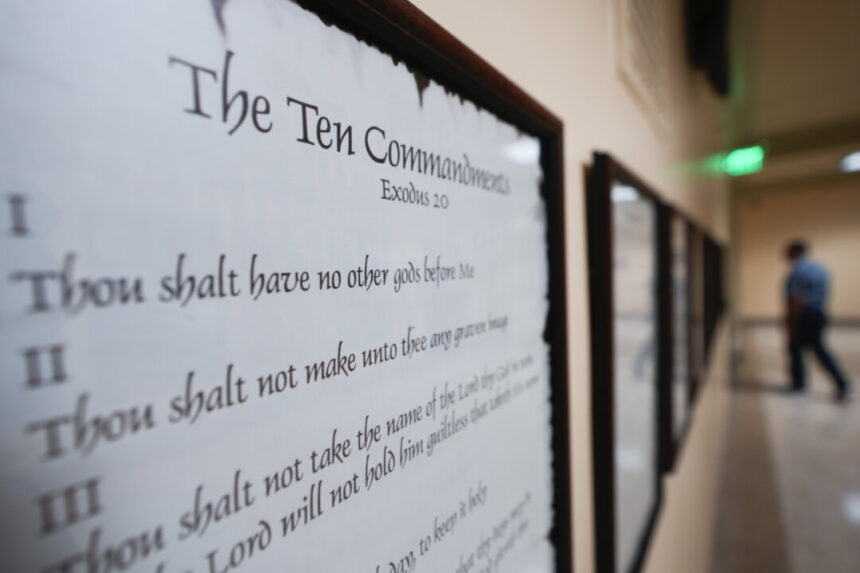A federal judge has approved an agreement to temporarily halt a new law in Louisiana that mandates public schools to display the Ten Commandments. The pause comes after plaintiffs filed a lawsuit against the state regarding the legislation.
As part of the agreement, the defendants, including State Superintendent of Education Cade Brumley, have agreed not to post the Ten Commandments in any public school classroom before November 15, 2024.
The decision by the judge follows a complaint filed by plaintiffs, represented by organizations such as the American Civil Liberties Union (ACLU) and the Freedom from Religion Foundation, against Mr. Brumley and others involved in the new law.
The legislation specifies that the poster or framed document must feature the text of the Ten Commandments as the central focus, printed in a large, easily readable font.
The plaintiffs sought a preliminary injunction to block the defendants from implementing the law’s requirements until the lawsuit is resolved.
The plaintiffs argue that the law infringes on the First Amendment by pressuring students into religious observance and sending a divisive message to those who do not adhere to the displayed religious scripture.
They also contend that the legislation interferes with parents’ rights to instill their chosen religious beliefs in their children.
The bill requiring the display of the Ten Commandments was introduced by State Representative Dodie Horton, who emphasized the historical significance of the text and its importance in Louisiana’s history.
Ms. Horton stated that while the Commandments do not promote a specific religion, they represent a moral code that all individuals should abide by.
In a landmark decision in 1980, the U.S. Supreme Court ruled in Stone v. Graham that a similar mandate in Kentucky public schools violated the Establishment Clause of the First Amendment.
The Court acknowledged the religious nature of the Commandments but noted their historical significance in American history and law, allowing for their display in certain contexts.
Comparing the cases, the Court determined that the passive display of the Commandments on capitol grounds differed from their mandatory presence in a classroom setting.







